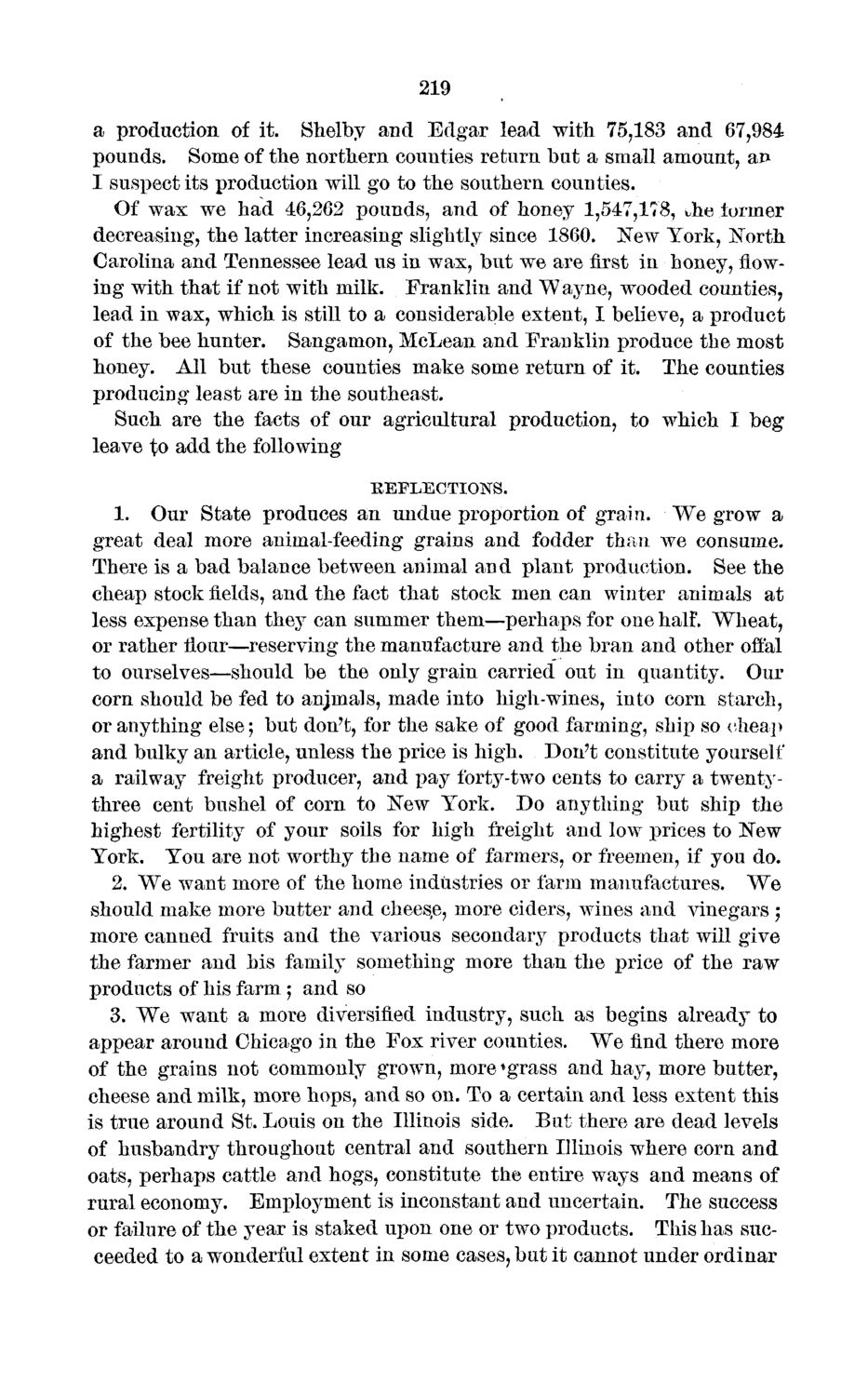| |
| |
Caption: Board of Trustees Minutes - 1873
This is a reduced-resolution page image for fast online browsing.

EXTRACTED TEXT FROM PAGE:
219 a production of it. Shelby and Edgar lead with 75,183 and 67,984 pounds. Some of the northern counties return but a small amount, an I suspect its production will go to the southern counties. Of wax we had 46,262 pounds, and of honey 1,547,178, die iormer decreasing, the latter increasing slightly since 1860. New York, North Carolina and Tennessee lead us in wax, but we are first in honey, flowing with that if not with milk. Franklin and Wayne, wooded counties, lead in wax, which is still to a considerable extent, I believe, a product of the bee hunter. Sangamon, McLean and Franklin produce the most honey. All but these counties make some return of it. The counties producing least are in the southeast. Such are the facts of our agricultural production, to which I beg leave to add the following REFLECTIONS. 1. Our State produces an undue proportion of grain. We grow a great deal more animal-feeding grains and fodder than we consume. There is a bad balance between animal and plant production. See the cheap stock fields, and the fact that stock men can winter animals at less expense than they can summer them—perhaps for one half. Wheat, or rather flour—reserving the manufacture and the bran and other offal to ourselves—should be the only grain carried out in quantity. Our corn should be fed to anjmals, made into high-wines, into corn starch, or anything else; but don't, for the sake of good farming, ship so cheap and bulky an article, unless the price is high. Don't constitute yourself a railway freight producer, and pay forty-two cents to carry a twentythree cent bushel of corn to New York. Do anything but ship the highest fertility of your soils for high freight and low prices to New York. You are not worthy the name of farmers, or freemen, if you do. 2. We want more of the home industries or farm manufactures. We should make more butter and cheesp, more ciders, wines and vinegars; more canned fruits and the various secondary products that will give the farmer and his family something more than the price of the raw products of his farm ; and so 3. We want a more diversified industry, such as begins already to appear around Chicago in the Fox river counties. We find there more of the grains not commonly grown, more *grass and hay, more butter, cheese and milk, more hops, and so on. To a certain and less extent this is true around St. Louis on the Illinois side. But there are dead levels of husbandry throughout central and southern Illinois where corn and oats, perhaps cattle and hogs, constitute the entire ways and means of rural economy. Employment is inconstant and uncertain. The success or failure of the year is staked upon one or two products. This has succeeded to a wonderful extent in some cases, but it cannot under ordinar
| |